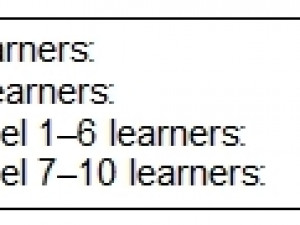
In November 2016, South Africa's unemployment rate reached a 12-year high of 27.1%. While this figure has since dropped to 26.5% (92 000 people have found employment), SA unemployment still ranks as one of the highest in the world; driven mainly by our skills crisis, says Greg Morris, CEO, MMG Holdings.
As organisations, this situation isn't one we face only when recruiting; it's one that affects the way we run our businesses and it's one we need to work to overcome. This is not just for the sake of the country we do business in and the reputation-building benefits of CSI initiatives, but because adopting skill-building programmes, like corporate learnerships, makes good business sense.
Introducing learnerships
A learnership is a time-bound, contracted partnership between an employer, a learner, and a Sector Education and Training Authority (SETA). During the programme, the learner works towards an NQF-registered qualification by gaining targeted on-the-job training via the employer and theoretical knowledge through the SETA. This combination gives learners the skills they need to perform and the work experience essential to finding further employment.
However, programmes like these have benefits beyond learners and the economy. By implementing and administering robust learnership initiatives, organisations can maximise their bottom lines by leveraging tax rebates, BEE ratings, and savings on talent acquisition.
Tax rebates for learnerships
To alleviate the burden of the skills crisis on the economy - and on the people themselves - government has increased corporate allowances for learnerships. These are claimable twice per learner: once the learner is in the programme, and when the learner has finished.

This is, obviously, a powerful contribution to a company's bottom line; especially since learners don't just learn - they also work while involved in the programme. Hire those learners once they're qualified, and your organisation could also be eligible for an employment tax incentive.
The financial rewards of BEE
In today's economic climate, B-BBEE goes beyond reputation: it's an effective contributor to success. Not only does the preferred procurement network expose companies to opportunities like government tenders and procurement databases, but small businesses can also access mentorship, investment and partnerships through the enterprise development benefit.
Learnership programmes and other skills development initiatives are excellent tools for bolstering an organisation's BEE status because they add as many as 20 points to the B-BBEE scorecard. But, to do this, the learnership must meet certain criteria. This includes (among other things) having a structured learning component, SETA registration, a formal agreement between the learner and the organisation, and an NQF-registered qualification on completion.
The cost of talent acquisition
Train a qualified individual to work in line with a company's policies, procedures, and ethics, and in most cases, you've developed an excellent resource for your business. However, it turns out that absorbing learnership trainees on completion offers more than just convenience. When considering the significant costs of interviewing, hiring, training, and reduced productivity, skipping the recruiting process can save you a significant portion of a recruit's salary. Multiply that by the number of employees an organisation hires every year, and the costs add up fast.
Further, reinvesting in learners reinforces their marketability. Sebata's Skills Development Director, Siviwe Kase, says, "Our model is to keep learners on our systems for three years. We upskill them until they are highly competitive in the jobs market. After this, they can also enter a 12-month internship programme."
Doing good for South Africa
Unemployment in South Africa is a crisis that ripples into much larger, more pervasive problems that affect all citizens and corporations. Although alleviating the unemployment burden won't happen overnight, corporate learnerships do make a difference at grassroots level.
Carl Stroud, Managing Director of Sebata, says: "Through learnerships and the recruitment of unemployed youth directly from the demographic area of the municipality, skills development is achieved in areas that wouldn't traditionally have had access. These learnerships, in conjunction with smart technologies, will undoubtedly provide a sustainable foundation over the medium to longer term."
As organisations doing business in a strained economy, it isn't just morally important to find ways to support transformation. A skilled and thriving working population will also make a difference to our operational success. Add to that the compounding financial rewards of formal learnership programmes, and it may make business sense to get started sooner.
Share
MICROmega
MICROmega (MMG) is a holding company listed on the main board of South Africa's JSE, with controlling interest in a number of operating subsidiaries.
These are primarily focused on education and training, risk (including health and safety), information technology, public sector support, and utilities.
Its business model differentiates it from other investment companies, as does its intellectual and technological strength, hands-on approach, exceptional leadership, and authentic commitment to improvement and innovation.
Editorial contacts